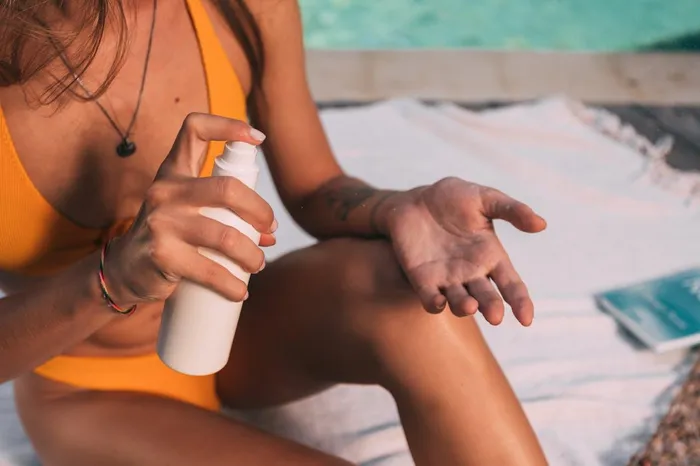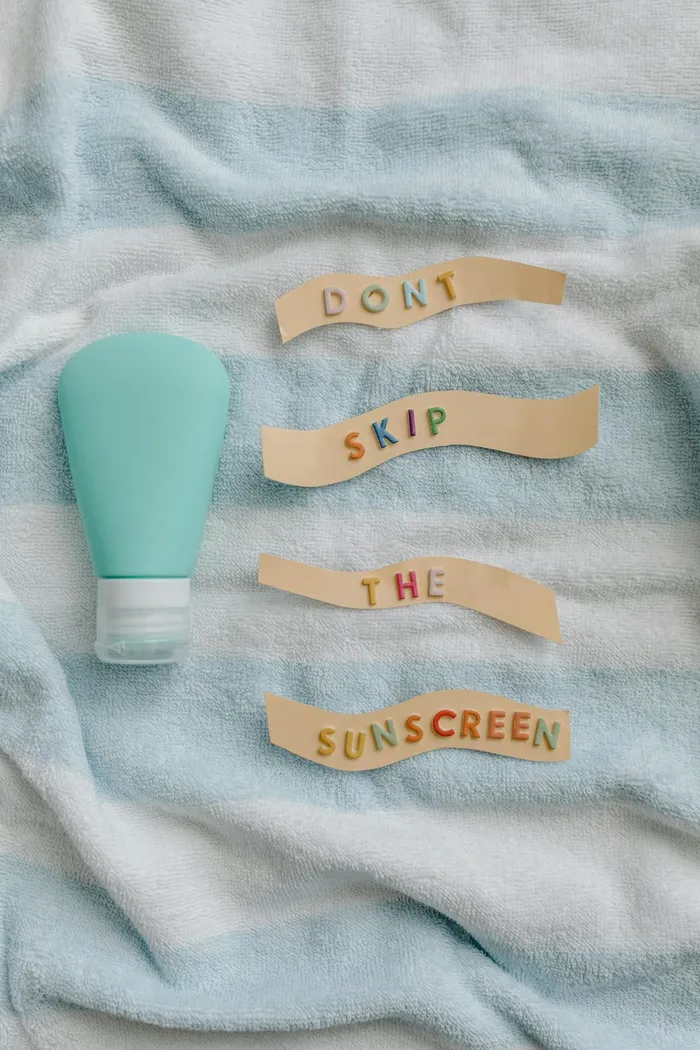Winter skin survival: don’t let the cold fool you -sunscreen is still a must

Healthy skin isn’t just about looking good. It’s a sign of overall wellness
Image: Mikhail Nilov/pexels
July's skin health observances remind us that sun protection isn’t seasonal, it’s essential.
When the temperatures drop and the skies turn grey, it’s easy to believe your skin is safe from the sun’s rays.
Here’s why your winter skincare routine needs a UV upgrade.
But winter is not a free pass to skip the sunscreen. July, with UV Safety Awareness Month, World Skin Health Day, and National Love Your Skin Day, offers the perfect reminder: there’s no health without skin health.“Your skin is your body’s largest organ. It protects you from the world, and yet we often forget to protect it back, especially when it’s cold,” says Dr Cebi Sibisi, dermatologist and founder of Dr Cebi Dermatology.
“Sun protection should be part of your daily health routine, all year round.”The Invisible Winter RiskCold weather can be deceiving. Just because you don’t feel the sun burning your skin doesn’t mean it’s not doing damage.
"Ultraviolet (UV) radiation remains a threat in winter, especially UVA rays, which account for 95% of the UV light that reaches the Earth and can penetrate clouds, windows, and even the top layer of your skin.
“UVA rays accelerate ageing by damaging collagen and elastin. UVB rays, which cause sunburn, may be less intense in winter, but they’re still there,” explains Dr Sibisi. “That’s why a broad-spectrum SPF is non-negotiable, regardless of the season.”
A 2021 study published in the Journal of Clinical and Aesthetic Dermatology highlighted that cumulative exposure to UVA rays, even indoors or during overcast days, contributes significantly to premature ageing and pigmentation, especially in darker skin tones, where hyperpigmentation can be stubborn.
Sunscreen isn’t just for summer or light skin
One of the biggest myths in skin care is that people with melanin-rich skin don’t need sunscreen. While darker skin may offer some natural protection, it’s not enough.
“Melanin filters out about 13.4% of UV rays,” says Sibisi. “That’s far from complete protection. In fact, skin cancer in darker skin tones is often diagnosed late, making it more dangerous.”
Pigmentation and melasma can worsen with sun exposure
Tinted sunscreens containing iron oxide offer an added layer of defence against visible light, a lesser-known skin enemy that can deepen dark spots.
Match your sunscreen to your skin type. We get it, sunscreen can feel greasy, heavy, or leave a ghostly cast. But not all sunscreens are created equal.

We get it, sunscreen can feel greasy, heavy, or leave a ghostly cast. But not all sunscreens are created equal.
Image: Tara Winstead /pexels
Here’s how to pick one that works for your skin, so you’ll actually use it every day:
- Oily or acne-prone skin: Go for gel-based or oil-free, non-comedogenic formulas. A matte finish helps control shine.
- Dry skin: Choose creamier options with hydrating ingredients like glycerin, ceramides, or hyaluronic acid.
- Sensitive skin: Stick to mineral sunscreens with zinc oxide or titanium dioxide, they’re gentler and less likely to irritate.
- Darker skin tones: Try tinted mineral or chemical sunscreens that blend in seamlessly while offering protection from visible light.
- Combo skin: Lightweight, balancing lotions work best in hydrating dry areas without clogging oily zones.
If you're not sure where to start, a dermatologist can help you understand your skin and guide you to the right sun protection. “It’s not just about beauty, it’s about your health,” says Sibisi.
Quick UV protection tips to live by
You don’t need a complicated 10-step routine; just a few smart habits can go a long way:
- Use broad-spectrum sunscreen (SPF 30 or higher), even on cloudy days.
- Apply it 30 minutes before sun exposure, and don’t forget areas like ears, neck, and hands.
- Reapply every two hours, or sooner if sweating or outdoors for extended periods.
- Wear hats, sunglasses, and UV-protective clothing, especially during outdoor winter sports.
- Stay out of tanning beds, they emit UV radiation that increases your cancer risk.
- Seek shade between 10 a.m. and 4 p.m., when UV levels peak.
This year’s World Skin Health Day theme, #NoHealthWithoutSkinHealth, is more than a catchy hashtag; it’s a mindset.
Your skin reflects your lifestyle, your stress, your nutrition, and yes, your level of care.
“Healthy skin isn’t just about looking good,” says Sibisi. "It’s a sign of overall wellness. If you love your skin, you’ll take care of it just like you would your heart, your mind, or your body. And that care begins with understanding how the sun affects it.”